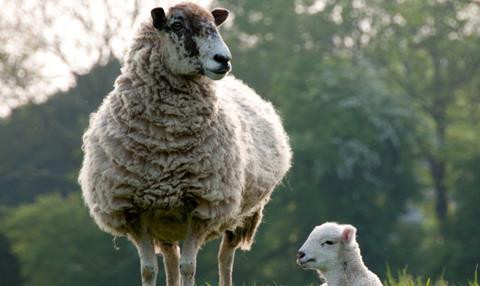The latest figures for lambs processed to date were marginally higher than expected, recent processing figures from Defra have revealed, which has been welcomed by Hybu Cig Cymru – Meat Promotion Wales (HCC). However, the red meat promotion body has raised concerns about the overall declining lamb crop figures.

Whilst the 2023-24 lamb crop was some 6% smaller than earlier year levels according to the June survey, HCC was pleased to note that predictions made in its Between the Lines report - Lamb Supply: Update & Outlook released in February 2024, modestly predicted that total lamb throughput for the 2023-24 lamb crop year would stand at around 11.9 million lambs.
Recently released figures by Defra have revealed that 12 million lambs were processed during the lamb crop year which focused on the period between May 2023 and April 2024 – which is around 1% higher than the HCC predicted level.
The report also estimated that a further 3.6 million lambs remained on the ground for slaughter within the lamb crop year at the time of writing. Defra’s throughput figures for January to April 2024 suggest that a total of 3.7 million lambs were processed during the period, which is some 3% higher than the estimation.
However, whilst this confirms a slight increase, concerns remain as the total number of lambs processed during the lamb crop year (the 12 million) – is 2.5% lower (or almost 304,000 head) than for the previous lamb crop (2022-23), and a further 5% fewer than the five-year average.
HCC’s intelligence, analysis and business insight executive, Glesni Phillips, said: “These figures are welcome news and we are pleased to see that that a few extra lambs came forward than initially anticipated. Record high farmgate prices may have encouraged more to come forward. However, this may mean that producers have retained fewer ewe lambs for breeding, which could have implications on the breeding flock size further down the line.”
Glesni added that this also raised concerns around overall available critical mass and highlighted wider potential implications.
“If the current overall declining trend continues, we could see an impact for the wider rural economy; for example, Welsh processing plants employ 1000s of people – if throughput continues to decrease there may be plant consolidation across the UK with the risk of job losses in Wales,” she said.
Furthermore, Glesni pointed out that demand is expected to increase on the domestic market, with another Islamic festival - Eid Al-Adha (beginning 16 June 2024) on the horizon.
“This may see favourable farmgate prices in early June and with an increasing supply on the domestic market as New Season Lambs come forward, we will hopefully also see import volumes level out,” she added.















